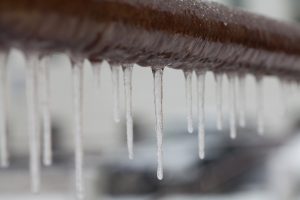
Would you believe that frozen pipes are never a concern for people in some parts of the country? In New Jersey, though, it’s something all homeowners have to think about, whether or not they’ve ever dealt with severely frozen pipes. When the problem does come up, you have a lot to consider. Will you simply take better precautions from now on? Will you call on a plumber in Teaneck, NJ to help? Should you consider major plumbing rerouting?
We cannot answer the toughest questions for you. We can, however, help you understand when it’s time to call a plumber for your frozen pipes and when you should do something on your own.
WHY PREVENTATIVE MEASURES ARE MOST IMPORTANT
A frozen pipe is likely to crack thanks to the pressure of an expanding and thawing pipe. Hopefully, you won’t have to call in plumbers for your frozen pipes—because you have taken preventative measures before a winter freeze. If you haven’t done so yet, now is the time to start!
- Insulate exposed piping by wrapping it in heat tape or a fitted pipe sleeve.
- Keep the heat on in your home even if you plan to be gone for several days. As the weather cools, monitor your indoor temperature and make sure it stays above 55 degrees in all parts of the house.
- In case freezing weather is predicted, you should keep the cupboard doors under the sink open and make sure heat can reach those pipes.
- Keep faucets at a drip in freezing temperatures, or at least the faucet furthest from where the water supply enters your home. The constant movement of water can prevent pipes from freezing.
HOW TO IDENTIFY VULNERABLE PIPES
Identify any pipes that move through un-insulated portions of the house, or portions that you don’t normally heat. In particular, look for pipes that run through an outside wall, where frost and cold spells have a much greater chance of affecting them.
Pipe openings into the main house don’t always have insulation nearby. Neither do electrical outlets. You can winterize them by filling the holes with acrylic latex caulk or the like. You can also add insulating sleeves to vulnerable pipes and insulating tape, both of which can be installed by a trained plumbing service.
A trained plumber can perform an inspection of your home and let you know which spots may need attending to.
WHEN YOU SHOULD CALL IN PLUMBERS FOR FROZEN PIPES
The best thing you can do is take every measure you can to prevent your pipes from freezing in the first place. Of course, pipes can freeze despite your best efforts. In this case, if you’re asking yourself “should I call a plumber for frozen pipes?” check to see whether you can find the source of the freezing along an exposed pipe. While you may be able to thaw it on your own, professionals have quality thawing equipment that can do the job faster and safely.
You should also call in plumbers if you cannot find the frozen pipe, or if there is any sign the pipe has cracked. In this case, shut off the water while you wait for a plumber to come, open the faucets, and protect the floors with towels and buckets.
WHAT NOT TO DO
At some point, it may make more sense to thaw the pipes on your own. We recommend calling in plumbers in severe cases, but if you do attempt thawing, be sure to follow these safety measures:
- Do not leave a portable heater unattended.
- Never use an open flame.
- Do not turn the faucets off.
- Do not ignore a potential crack or hole in the pipe.
WHEN SHOULD YOU CONSIDER DRASTIC MEASURES
If your pipes keep freezing time and time again, no matter what you do or how well you insulate the pipes, it may be time to take drastic measures. This is also true if the freezing keeps happening inside the walls or elsewhere you cannot easily reach for insulation or thawing.
In this case, you might need to have the pipes rerouted. A professional plumber in Teaneck, NJ can help you decide whether this is the case, so at some point, it’s certainly worth calling in a plumber to discuss your frozen pipes.
BZ Dependable Plumbing & Heating Inc. can help with your frozen pipes in Teaneck, NJ. Call today for exceptional customer service!

